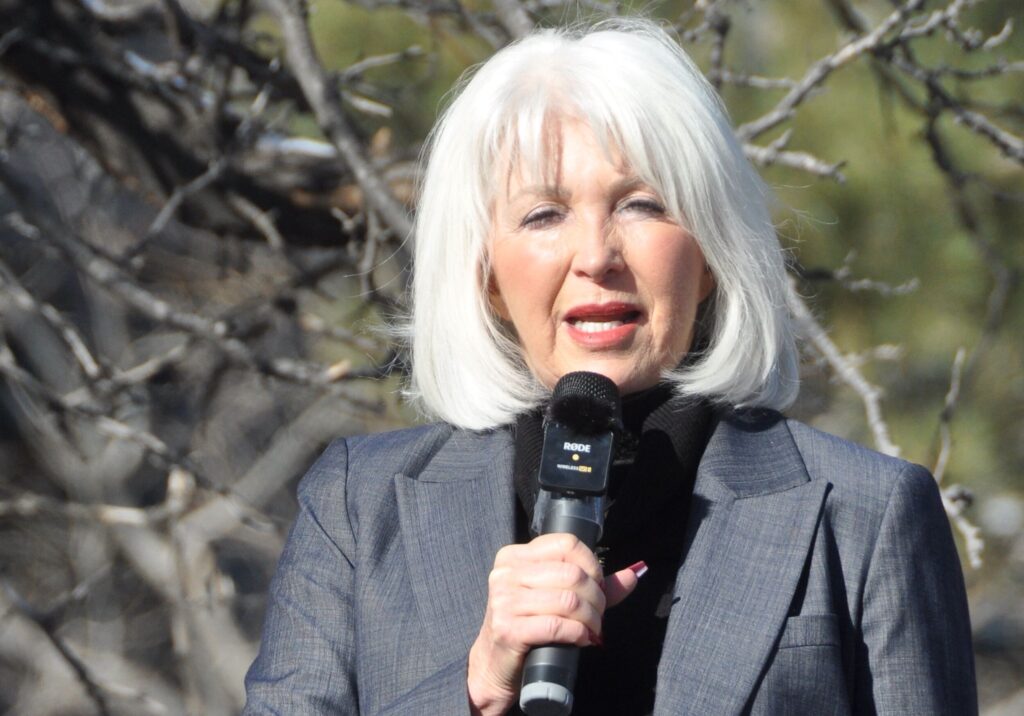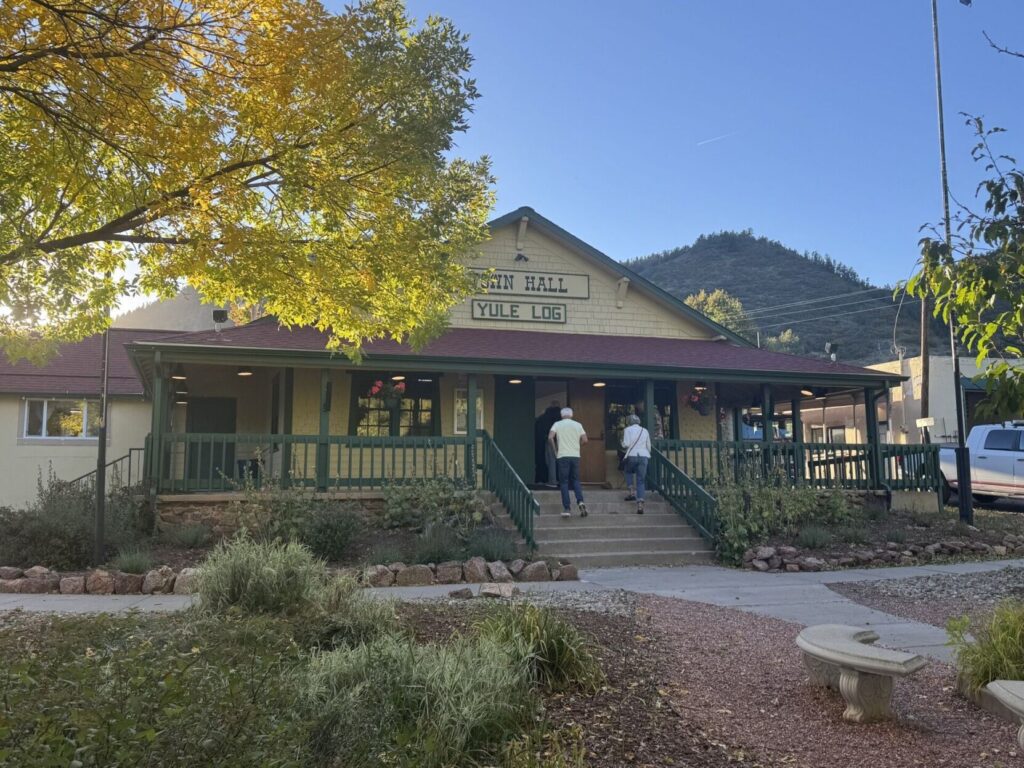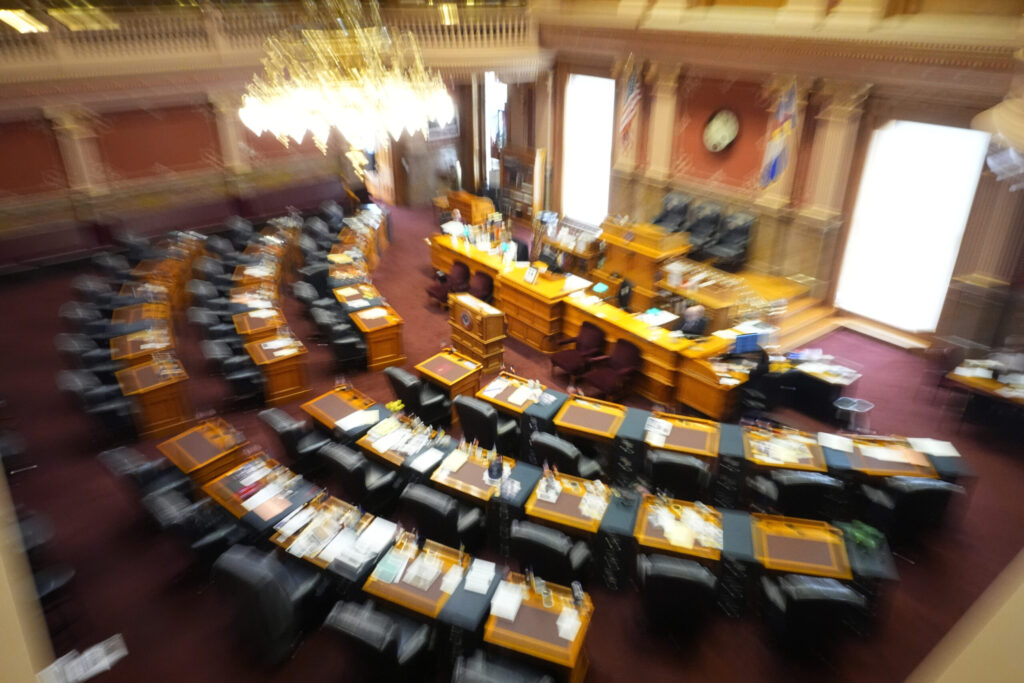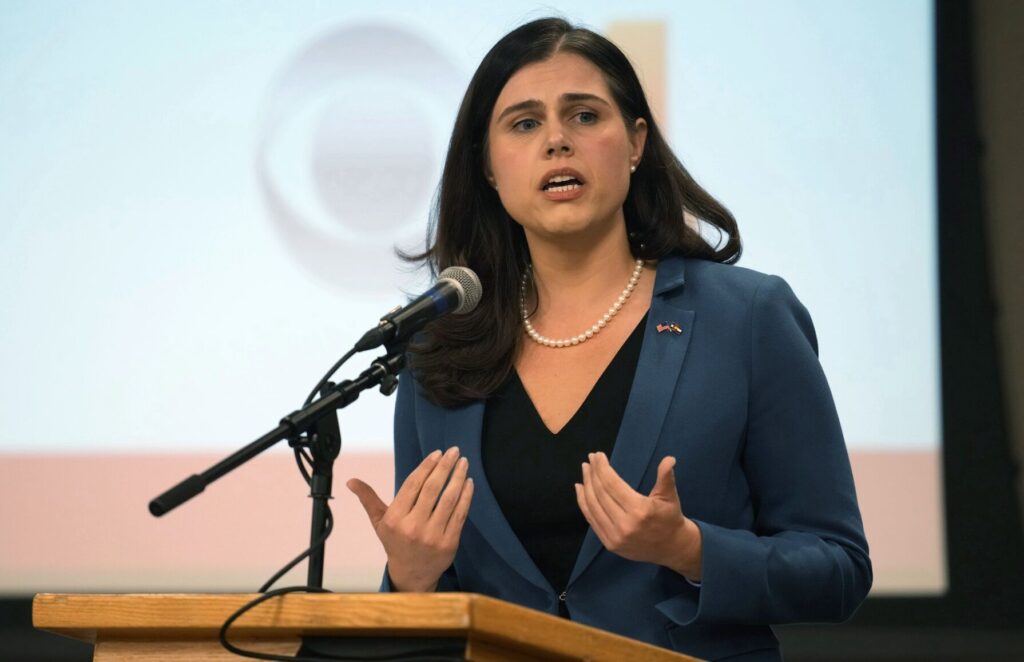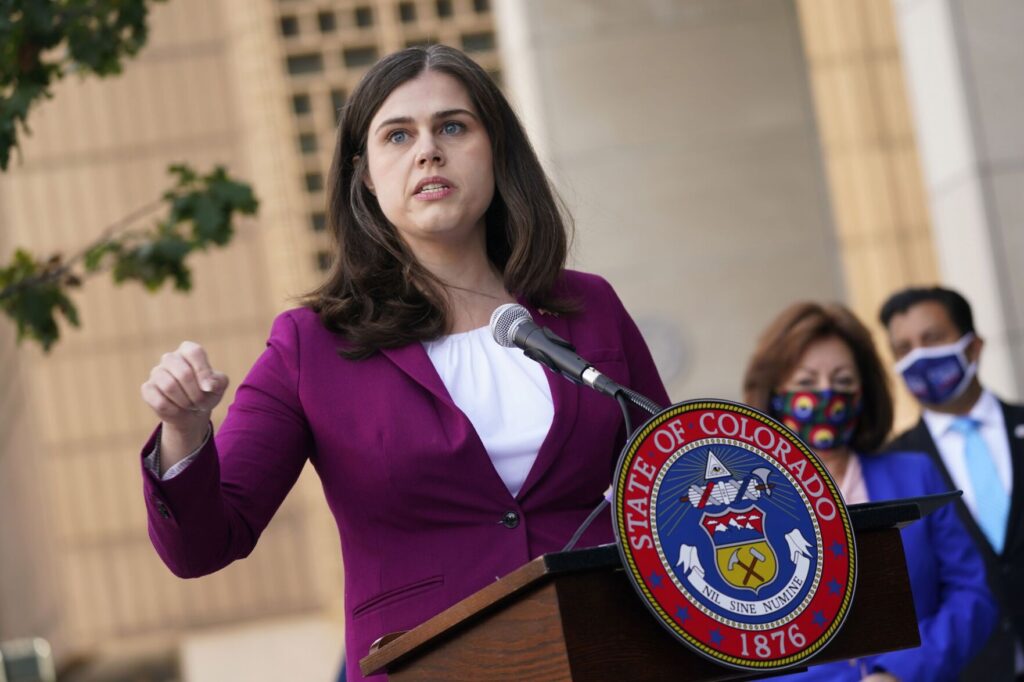Colorado Gov. Jared Polis urges lawmakers to pay fallen officer’s widow $1 million as mandated by voter-approved measure
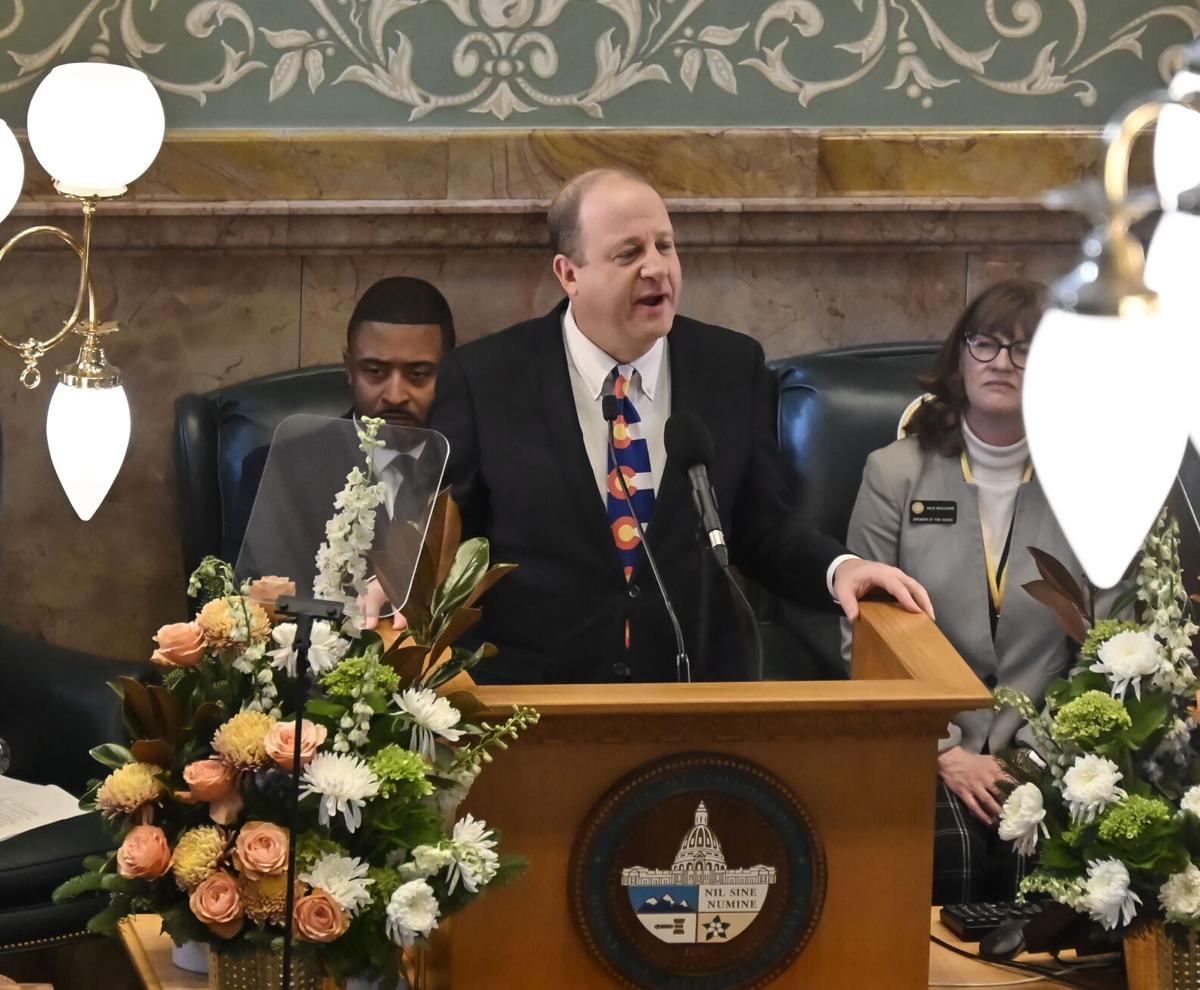
Special to Colorado Polotics/John Leyba
Gov. Jared Polis on Thursday urged lawmakers to honor the will of the voters, notably by immediately implementing a measure approved last November that directs the state to provide benefits to the families of officers killed in the line of duty.
One of the governor’s guests at his annual State of the State address was Annalise Dunn, the widow of Golden officer Evan Dunn, who was struck and killed while responding to a highway crash on Nov. 6. Authorities said a man drove into the crash scene, slamming into a parked truck and pushing it into another car, pinning both Dunn and another officer.
“Annalise, we extend to you our deepest condolences. Thank you for being with us today,” the governor said.
“We now have the opportunity to implement this as quickly as possible to ensure no family of a law enforcement officer lost in the line of duty needs to worry about their needs being met. And we can work together to ensure that the family of Golden Officer Evan Dunn, who was tragically killed in the line of duty on November 6, receives this support that was passed the day before his death.”
Proposition 130 directs the state to spend $350 million to help law enforcement agencies train, recruit, and retain officers, as well as provide additional benefits to the families of law enforcers killed in the line of duty. The new law requires the state to provide a one-time $1 million benefit each to their families.
“It is now our role and responsibility to implement the will of the voters,” Polis told lawmakers.
Advance Colorado, the group behind the voter approved measure, said Annalise Dunn should receive the $1 million promised by the initiative, noting he died a day after the passage of Proposition 130.
Colorado lawmakers have been scrambling to figure out exactly how to carry out the program. The measure did not specify a timeline for when the money must be allocated or whether it’s a yearly allocation.
Lawmakers are grappling with those questions as the state’s budget crafters are seeking money anywhere, given that the state faces a shortfall of several hundred million dollars.
Legislative leaders offered differing opinions on how the voter-approved funding mandate would work.
When asked if the $350 million would be allocated in the next session, Senate President James Coleman of Denver said it could be included in the upcoming year’s budget. Senate Assistant Minority Leader Cleave Simpson of Alamosa noted that the ballot measure does not say how it’s supposed to be spent and that there are other priorities, such as Medicaid and K-12 education. House Speaker Julie McCluskie of Dillon suggested the $350 million should come from the state’s 15% statutory reserve.
“This may be the moment” to do that, she said.


